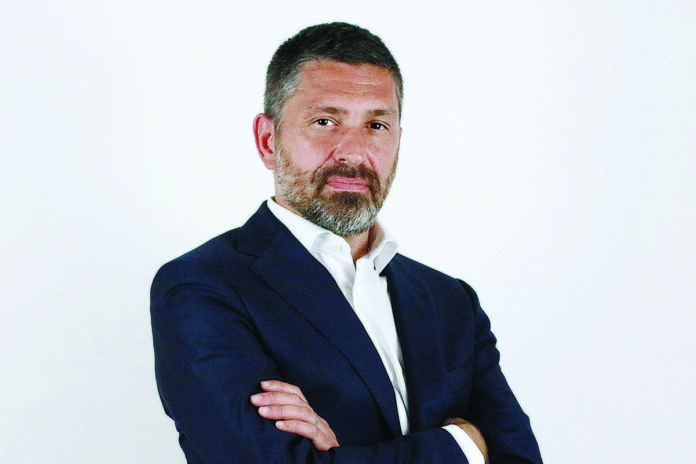Many healthcare innovation projects are brilliant. They contain unexplored opportunities within them, they are time and life for people with diseases that have no cure. Whether or not they see the light of the sun, or more concretely the spotlight of the market, depends above all on their ability to attract investments.
To talk about the financing models of technology transfer (TT) we interviewed Alessio Beverina, founder and managing partner of Panakès (venture capital company) and general secretary of the Italian Tech Alliance.
The BioInItaly report traces the description of a living and vital biotech sector, particularly in the healthcare sector. What is currently the most promising investment strand in the life science sector?
The BioInItaly report represented biotech as an Italian excellence, with a large number of companies; extremely active companies, strong in production (remember that Italy is first, ahead of Germany and France, in the production of drugs) and research.
Instead, in our country the world of startups in the life sciences is still in its infancy. The first substantial venture capital loans of these startups date back to just 5-10 years ago.
The raising of capital is still rather limited when compared with the rest of Europe or the world: with us, startups in the life sciences raised a hundred million euros in 2021, over a billion in France, two billion in the UK and in the US we are over 60 billion.
There are several sectors of excellence, first of all that of gene therapy, (where the San Donato Group and the Telethon world are very active), and also surgical robotics and diagnostics.
This context reduces the opportunity to translate discoveries into solutions to people’s real problems: what could we do to improve the situation?
Much can still be done. And we work within Panakès, but also with the Italian Tech Alliance, to ensure that the situation continues to improve. Certainly in recent years the situation has improved, even if we are far from other European countries similar to Italy and the USA. But allow me a positive note. Over the past 5-6 years, the Italian government, the European Commission and institutional and private investors have realized the importance of financing innovation.
This awareness has led to the creation of venture capital funds dedicated to the life science sector, such as Sofinnova-Telethon, Indaco Venture, Genextra, Claris Venture and Panakes, in addition to the activities of CDP Venture Capital (with direct investments and in funds).
All this will allow the financing of numerous startups in the sector, which will certainly be followed by investments from foreign funds, essential to allow product development, respond to care needs and create market leaders.
However, many problems persist, which must be resolved if we want our country to become a champion in the development of new drugs and medical devices, as well as in production.
For example?
The first factor to work on is the TT Office. Today many institutions deal with it, but with an essentially administrative profile and not very oriented towards creating value, with the possibility of creating startups or licenses for large industrial groups: the government is working on the selection of a certain number of TT centers that work alongside as companies outside the research centers.
We must not forget, then, that until the beginning of this year the so-called professor privilege was in force, which attributed to the researcher-inventor all the rights, patrimonial and otherwise, related to the intellectual property of the project. A recent decree has attributed the ownership of inventions made in the field of public research no longer to the individual researcher, but to the university or research institution.
This, together with the new TT Offices, will promote the enhancement of the patent, both as a license for a large industrial group and through the creation of innovative start-ups.
And then there is the matter of the tax credit …
As the Italian Tech Alliance we are working with the various ministries to bring the research and development tax credit back to 50%, in line with countries such as France, Germany and the UK. We would also like this credit to be offset, through the sale or repayment by the state of the capital invested.
Often the innovative startups have no turnover or profits and, consequently, do not pay taxes: they therefore find themselves with a strong credit but without the necessary cash for development. However, let me say that another critical factor is that of the administrative complexities associated with carrying out clinical trials.
The streamlining of procedures would be crucial both for the startup, which would have the opportunity to set up the trial in their own country, and for the research center and for patients, who would have access to innovative therapies.
Deep tech, in particular, often struggles to raise funding, due to the complexity of the projects, the long time-to-market and the high costs: how could we guarantee greater support for these companies’ TT?
Contrary to what happens in digital, where products are developed more rapidly, in deep tech the complexities slow down the development path, which can require large investments (venture capital, entrepreneur, business angel or other) and many years of work.
Furthermore, we are talking about companies that do not necessarily make a turnover, and so a profit: it is therefore necessary to find intelligent financing methods. The first steps in technology readiness are the longest and most expensive ones.
On the model of other countries, we should also push researchers to obtain grants or have access to funding for obtaining a proof of concept: solutions that allow to reach a relatively advanced TRL and that minimize the investment risk.
Our biotechnological corporate fabric is mainly made up of micro-enterprises: what are the characteristics that enable a small startup to compete internationally?
In all sectors, including biotech, the Italian fabric is made up of micro-enterprises, which are not all startups.
Startups are realities that aim to achieve a product with a high level of innovation. They must create a good product, think with an international mentality (and therefore be very ambitious), have the ability to target significant markets and grow as a structure.
Usually, the team is initially composed of a core of researchers with a highly scientific profile who do not necessarily have managerial and business skills within it.
Efforts should not only be focused on product development but also on activities such as clinical trial design and institutional relationships with regulators. To ensure that these micro-enterprises become true leaders, they must therefore also be structured at team level.
In your opinion, could streamlining the procedures for the creation of spin-offs be a way to curb the flight of brilliant minds from Italy?
Yes, even if the creation of startups in itself is not complicated, it is an administrative task. The complicated aspect is to ensure that the start-up receives the necessary funding for the development of its product. So, I would not limit myself simply to streamlining administrative and bureaucratic procedures, but would create an ecosystem of investors who know the sector and who can take the risk, which is connected to research centers, which includes expert consultants in the individual fields (regulatory, clinical etc.) or CRO.
Stopping the brain from leaking out of the country is complicated, especially since a post-doc earns significantly less here than in other European countries. The possibility, for the researcher, to create a startup and hold shares in a promising company can help keep brain drain. An example is that of the Italian Institute of Technology, which has managed to bring foreign researchers to Italy thanks to this type of project.
Of course, the researcher must not focus exclusively on scientific publications, but consider the hypothesis of creating a patent and, why not, a startup. In many foreign universities one of the determining parameters for the career of a researcher, in addition to scientific publications in high IF journals, is the number of patents and start-ups that he has started.
The activity of Panakès, initially focused on medtech, has extended to biotech, with the creation of the Purple Fund. What objectives do you intend to achieve in the most critical aspects for people’s lives, such as incurable diseases?
We created the first “Panakès” Fund in 2016, worth 76 million euros; in 2021 we raised the second “Purple” Fund, more than doubling the capital to over 150 million.
This is partly linked to the expansion of our focus from Medtech (medical device, digital health and surgical equipment) to biotechnology, driven by the awareness that in Italy there was enormous potential still little recognized by venture capital funds.
The goal is to give startups, researchers and entrepreneurs the capital and aid, through our skills and networks, necessary for their development. Panakès has an absolutely opportunistic approach: we are looking for a unique, well-patented technology, developed by a team of top-level researchers that can solve a medical problem that still has no solution.
We hope, both for the financial returns of the fund and for the impact on the lives of patients, that the projects we have financed will reach the market and provide a solution to the still untreated diseases.
Related articles:
The future of low temperature sterilization
The fifth ISPE Pharma 4.0™ Survey, how far in the journey are we?


